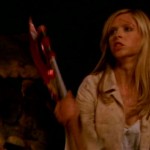One of my friends from college asked me this question recently in regards to Pope Francis’s latest encyclical Laudato Si.
“No liberal, democrat millennial is going to read the encyclical so why in the world did he highlight the saving the environment (even though Catholics take care of it most) and not something else? There are so many lax Catholics and young Catholics who are missing something: The teachings of the Catholic Church. Why couldn’t he highlight that? Why aren’t things like that coming out from reading the encyclical instead of the environment?”
I’ll be honest when I say that I don’t have an answer for that right now. Pope Francis has never been one to go with expectations. And I’m not even halfway through finishing this encyclical!
From what I read so far, I’ve gotten two things. First of all, it reminds me of something my mother always said: “Charity begins at home.” Even though we were created for Heaven, the Earth is our home. A temporary home, yes, but still our home. So if we’re gonna start changing ourselves, we have to start by taking care of our home first.
I also felt major Josemaria Escriva vibes from this encyclical. Yes, Pope Francis is channeling major Franciscan spirituality, but there’s also the challenging tone that only St. Josemaria Escriva can bring to the table. The encyclical is direct and challenging, forcing us outside of our comfort zones, forcing us to think outside of ourselves. It could also be the Jesuit spirituality as well, given that St. Ignatius has a military background.
Tom McDonald of God and the Machine has been live-tweeting the encyclical, which has inspired me to do something similar here. I’ll be going through a chapter of the encyclical (or as much as I can, depending on how long the chapters are). Today, I will start with the introduction.
The encyclical opens with where the title of the encyclical came from: St. Francis’s Canticle of the Sun. He refers Earth as a sister, which makes sense because ontologically, we are related to the Earth by the fact that both the Earth and us are created by us. He also reminds us that we are created from the Earth and we depend on her to sustain ourselves.
Paragraphs 3-6 cite his predecessors’ viewpoints on the importance of taking care of the Earth. He starts with Pope Saint John XXIII and ends with Benedict, showing that this issue isn’t just a hot-button trend, but something that previous popes have brought up before. The ones that stand out the most to me are, of course, the paragraphs where he refers to St. John Paul II and Benedict XVI.
Standout quotes from Paragraph 5:
The destruction of the human environment is extremely serious, not only because God has entrusted the world to us men and women, but because human life itself is a gift which must be defended from various forms of debasement.” “Authentic human development has a moral character. It presumes full respect for the human person, but it must also be concerned for the world around us and ‘take into account the nature of each being and of its mutual connection to an ordered system.’
Being pro-environment is being pro-life.
Standout quote from Paragraph 6:
Pope Benedict asked us to recognize that the natural environment has been gravely damaged by our irresponsible behavior. The social environment has also suffered damage. Both are ultimately due to the same evil: the notion that there are no indisputable truths to guide our lives, and hence human freedom is limitless. We have forgotten that “man is not only a freedom which he creates for himself. Man does not create himself. He is spirit and will, but also nature.
Have I ever mentioned how I hate existentialism?
Paragraphs 7-9 emphasize the universality of this issue by citing Patriarch Bartholomew’s views on the issue. The Patriarch’s opinions support Francis’s views on the connection between the fallen state of humanity and the fallen state of the world as a whole.
Paragraphs 10-12 brings up Pope Francis’s namesake, St. Francis of Assisi, and how exactly the saint inspired this encyclical. His love for nature isn’t “naive romanticism” or flower child delusions, but comes out of a genuine awe and wonder. And the lifestyle St. Francis chose to lead wasn’t done for show, but from “a refusal to turn reality into an object simply to be used and controlled.” (Again, take that, existentialism!) I also liked that Pope Francis brings up Scripture a few times in this introduction.
The last four paragraphs of the introduction focus on Pope Francis’s appeal. He knows that the world is not beyond saving and he knows that “young people demand change.” He calls for a new dialogue about how to make the world better and for cooperation. He also says that there won’t be any easy answers to the questions that my friend asked me, but layers.
I look forward to continuing my commentary, but before I do, I have some snarking that I’ve been saving since last weekend.
Dear pundits and politicians, I really hope that you actually read this thing and aren’t just citing the party line script. I don’t care if you’re liberal or conservative, but the fact of the matter is that this encyclical is challenging you. So if you’re gonna go on your cable news program and talk about how you know more about economics and the environment than a man who actually lived in a country that had constant economic struggles and studied about the environment as part of his science degree, then do us all a favor and keep your mouth shut. Your logic is not compatible with our earth logic.













